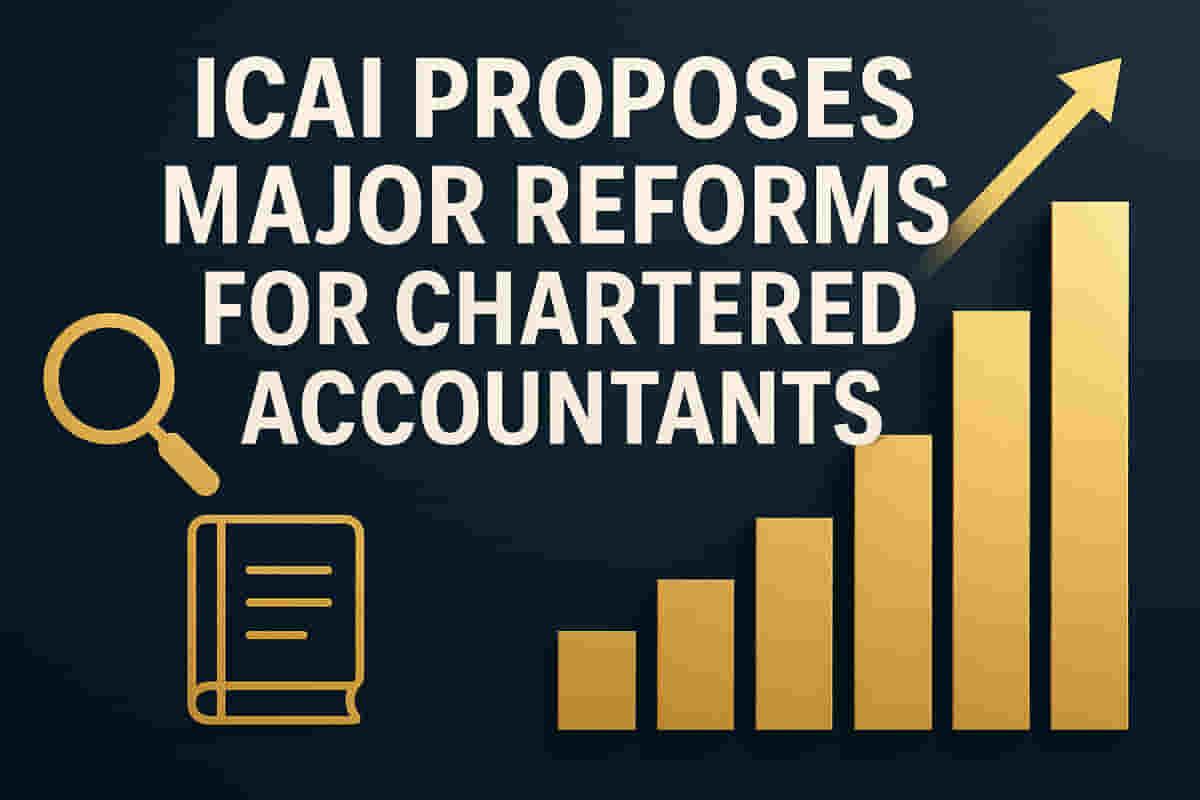ICAI Proposes Major Relaxations for Chartered Accountants, Allowing More Audits, Advertising, and Non-Audit Work
Economy
|
31st October 2025, 5:55 PM

▶
Short Description :
Detailed Coverage :
The Institute of Chartered Accountants of India (ICAI) has put forward significant proposed changes to its Code of Ethics, aiming to provide its members with greater flexibility and scope for business. The most notable proposal is to increase the limit of statutory audit work that a Chartered Accountant (CA) can undertake, allowing them to audit up to 40 firms, an increase from the current limit of 30. This includes companies, limited liability partnerships (LLPs), and partnership firms. The ICAI has clarified that CAs will still need to comply with the statutory audit limit prescribed under the Companies Act, 2013, which restricts auditors to a maximum of 20 companies at a time (with certain exclusions).
Furthermore, CAs will be allowed to advertise to attract clients, a move that was previously restricted. While retaining safeguards against exaggerated claims, the new guidelines will provide more flexibility in how firms can promote their services. The institute also proposes allowing auditors to take on more non-audit work, especially for Micro, Small, and Medium Enterprises (MSMEs). A significant revision increases the turnover threshold for accepting non-audit work for listed and public companies from Rs 50 crore to Rs 250 crore, opening up more avenues for revenue.
In terms of professional development and outreach, CAs will be permitted to sponsor select seminars and events, both domestically and internationally, broadening the scope beyond just purely educational seminars. The proposals also facilitate CAs taking on audit assignments for companies undergoing insolvency resolution processes, even if past audit fees are outstanding.
Impact: These proposed relaxations are anticipated to foster the growth of larger CA firms in India, enhancing their ability to compete with established global audit and advisory firms. The increased scope for non-audit work and client attraction could lead to greater profitability and market share for Indian CA firms. Impact Rating: 7/10
Heading: Difficult Terms Explained: * **Statutory Audit**: An audit that is required by law to be performed on the financial statements of a company or organization. * **LLPs (Limited Liability Partnerships)**: A type of business structure that combines the flexibility of a partnership with the limited liability of a company. * **MSME (Micro, Small, and Medium Enterprises)**: Businesses categorized based on their investment in plant and machinery and annual turnover. * **Insolvency Resolution Process**: A legal procedure for companies that are unable to pay their debts, aiming to restructure their finances or liquidate assets. * **Resolution Professional (RP)**: An insolvency professional appointed to manage the corporate debtor during the Corporate Insolvency Resolution Process (CIRP) under the Insolvency and Bankruptcy Code, 2016. * **Companies Act, 2013**: The primary legislation in India governing the formation, operation, and regulation of companies. * **PSU (Public Sector Undertaking)**: A company wholly or jointly owned by the government.